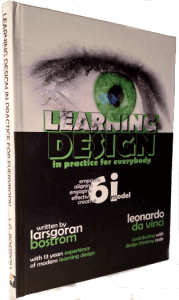 Artificial intelligence could be a bridge. The connector
Artificial intelligence could be a bridge. The connector ![]() to improve human interaction and adapting education in accordance with individual preferences and skills. And at the same time, automating administrative tasks in the educational process to make more room for learning and teaching. Data is here the AI language to make it all work.
to improve human interaction and adapting education in accordance with individual preferences and skills. And at the same time, automating administrative tasks in the educational process to make more room for learning and teaching. Data is here the AI language to make it all work.
Improving teacher’s administrative work
The last thing first, the process of grading homework, essays and student responses are everlasting and extremely time-consuming for teachers. With the AI-solutions that is in the making this soon will be a thing of the past, something that belonged to the industrial age, but not anymore. Where teachers instead could focus on qualitative teaching and individual development support.
Using AI in Storyteller
Today, multiple-choice questions and fill in answer tasks can be automated. But very soon this automation also will include evaluation of essays and other open-ended answers with AI as an assistant or replacement for human grading. On our platform where you can create interactive books, Storyteller on eLearningworld, an essay-module is included in the services directed towards educational organisations that give students feedback on what they are writing in real-time. The service Storyteller PublishingLab and the Storyteller On Demand-service is available now.
Artificial Intelligence for Education
However, the prospects of artificial intelligence in education goes a lot further. Intelligent tutoring systems that are most workable outside the classroom is one application that can relieve teachers task of formal feedback to students, both administrative and educational. Where teachers instead can focus on the more human interaction of qualitative feedback and personalised teaching. This in order to satisfy different learning styles and to take learning to the next level. We at eLearningworld Europe AB intending to be a part of this development.
Written by
LarsGoran Bostrom©
 In the book Learning Design in Practice for Everybody you can read about the 6iModel that is based on 16 of Leonardo’s Design Thinking codes. The 6iModel is a guide and framework to improve the outcome and management of projects where creativity and innovation are the main driving forces. Click here for more information
In the book Learning Design in Practice for Everybody you can read about the 6iModel that is based on 16 of Leonardo’s Design Thinking codes. The 6iModel is a guide and framework to improve the outcome and management of projects where creativity and innovation are the main driving forces. Click here for more information
Opens in a new tab



